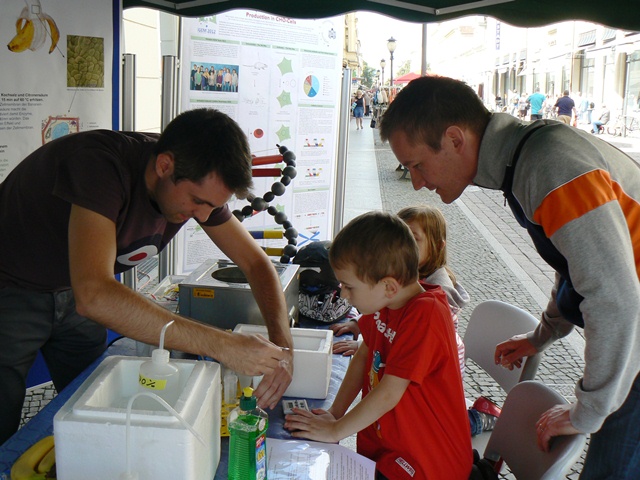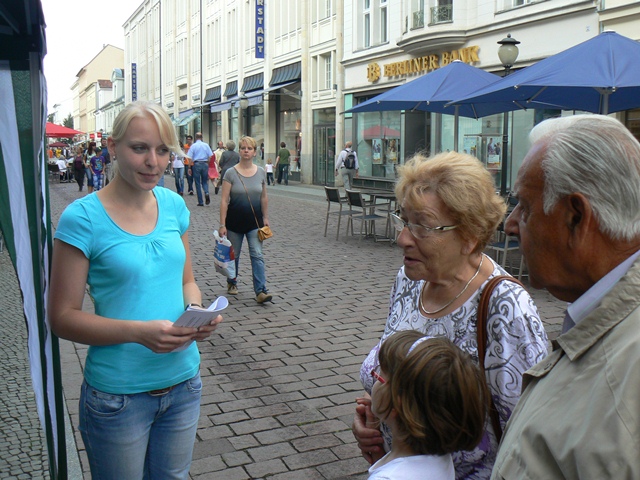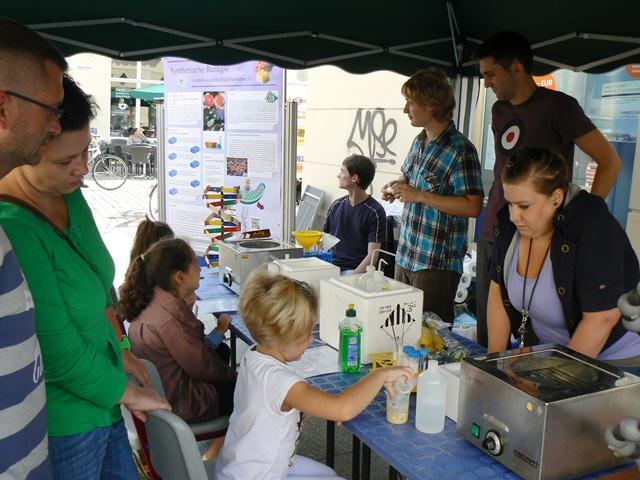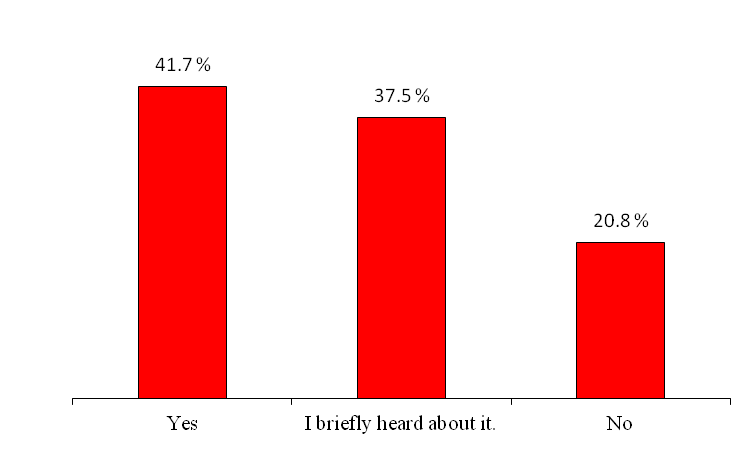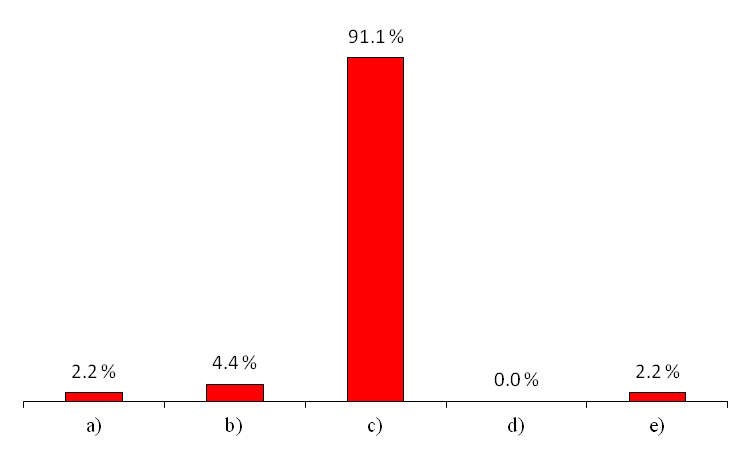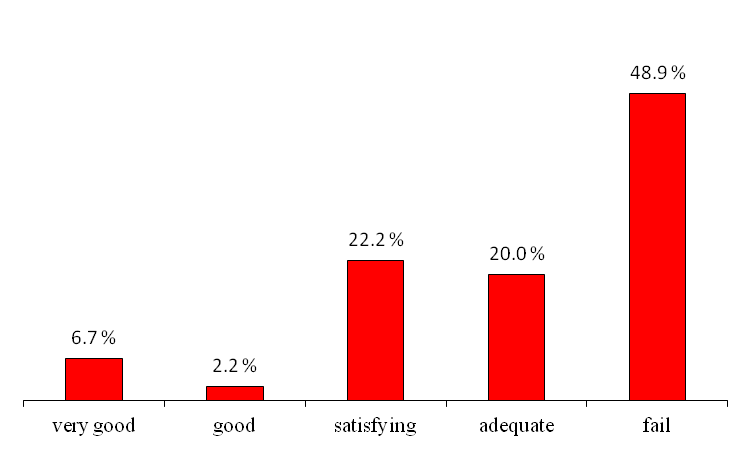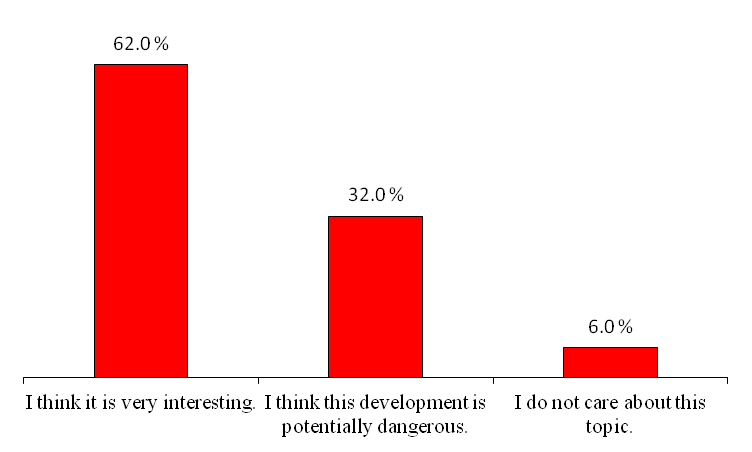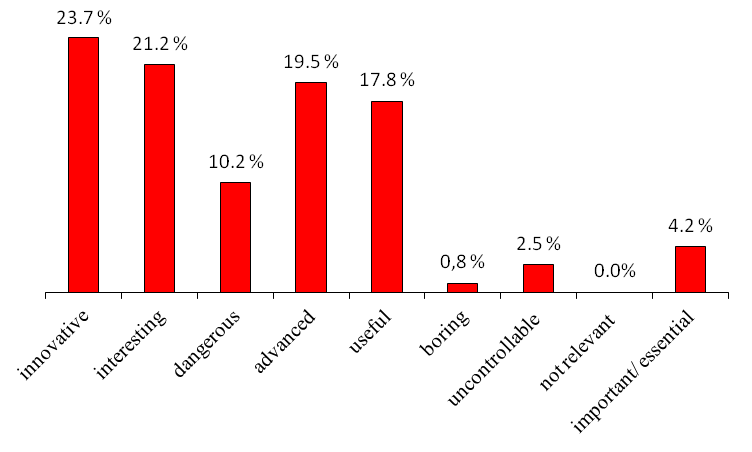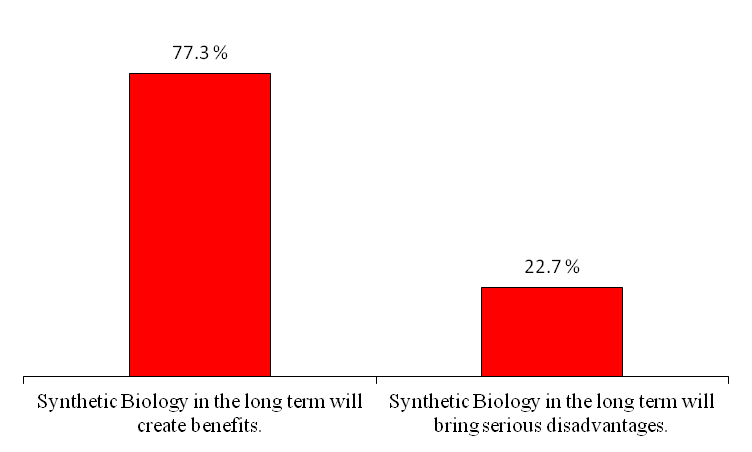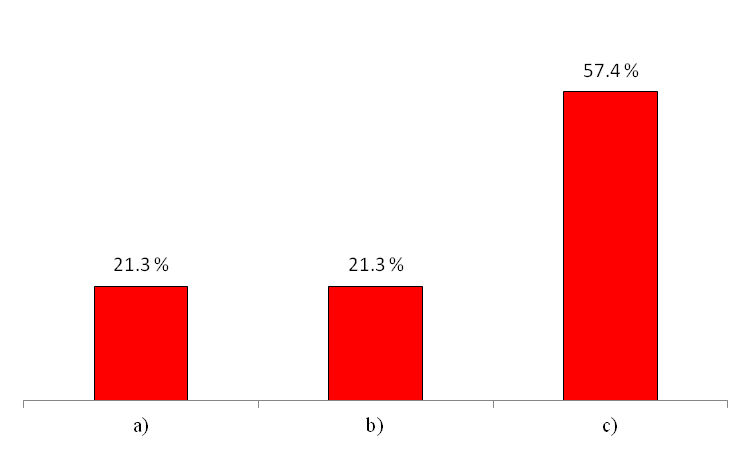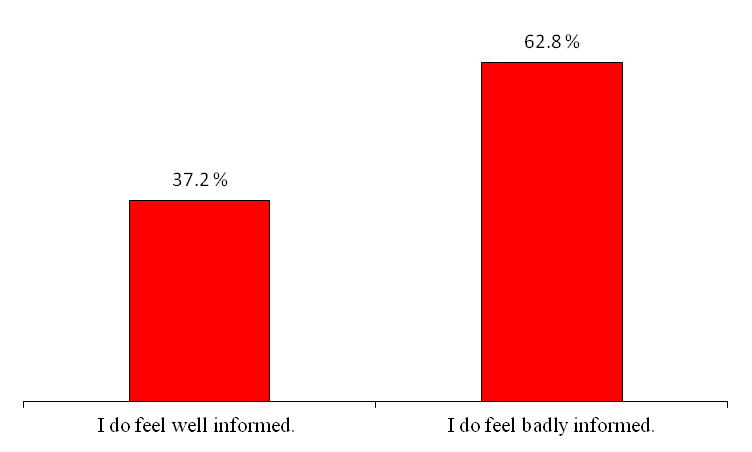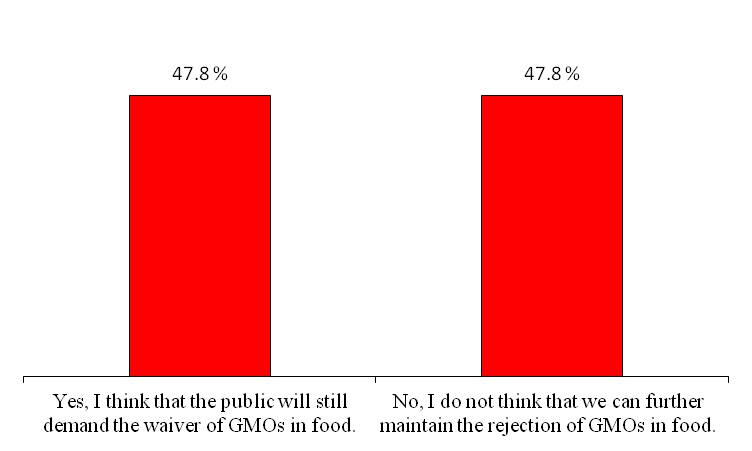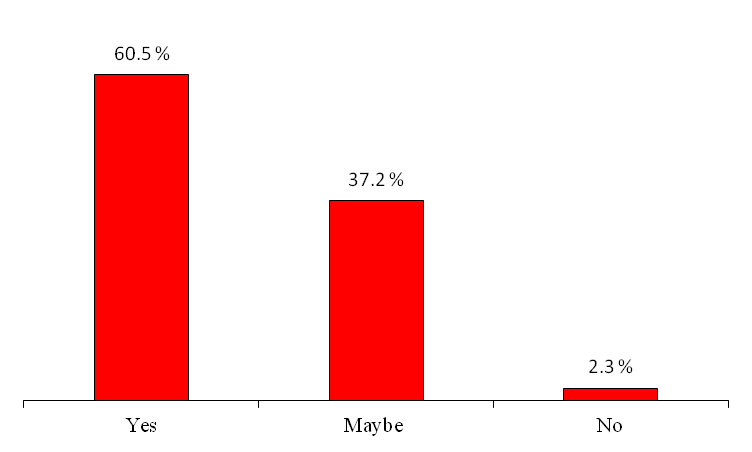Team:Potsdam Bioware/SocialBrick/Science Meets People
From 2012.igem.org
Contents |
Science Meets People
German Wide Action Day
In june this year all German iGEM team met up at the third annual conference for biotechnology of the generation 2020+ organized by the Federal Ministry of Education and Research (Bundesministerium für Bildung und Forschung, BMBF). In context of this conference the teams developed the idea of a German wide “ACTION DAY FOR SYNTHETIC BIOLOGY” which should take place for its first time on the 25th of August this year. Each German iGEM team organized an action day in their university hometowns to launch an initiative for public dialogue about Synthetic Biology and to draw the public’s attention to this scientific field.
Day of Synthetic Biology in Potsdam's center with information booth and street lab
In Potsdam city we set up an information booth with posters in the main pedestrian area (Brandenburger Straße) and started an interesting dialogue with people of all ages who passed by and stopped over. We informed them about Synthetic Biology in general to create a common understanding of this new scientific field and to spark their interest. The advantages and possibilities of Synthetic Biology were equally subject of this dialogue as the disadvantages and potential risks that this new field possesses. People showed a great interest for the iGEM competition and its nature as scientific student competition.
As a generation-spanning initiative, we built up a mobile street lab offering DNA extraction out of bananas mainly for children who showed interest, but also for adults and often for families. We got an overwhelming positive resonance from all parents who got attracted by our scientific street experiment. Our lab was equipped with a hot water bath, ice baths, non-toxic chemicals, and grinding and filtration units and a poster describing the protocol.
Asking the People about Synthetic Biology
The second section of our SocialBrick is the part "Science meets people". For this SocialBrick we developed a survey to ask about people's knowledge of Synthetic Biology and their opinion on this scientific field. In the following the results of this survey will be presented.
1. Have you ever heard about the term/ the scientific field of Synthetic Biology?
a) Yes
b) I briefly heard about it.
c) No
2. Which definition would match your idea of Synthetic Biology?
a) branch of Biology that releates to the animal kingdom, espacially to the multicellular organisms
b) interdisciplinary scientific field, which solves biological problems on the basis of theoretical and computer-based modelsy
c) interdisciplinary scientific field, which aims to design biological systems with new features that did not exist in nature on the basis of standardized biobricks
d) a new microbiotical field, which deals with the optimization of yeast cultures for Dr. Oetker backing mixtures
3. How do you see your knowledge of Synthetic Biology?
a) very good
b) good
c) satisfying
d) adequate
c) fail
4. In 2010 the creation of a bacteria with an entirely synthetic (artificial) genome was completed. What do you think about this?
a) I think it is very interesting.
b) I think this developent ist potentially dangerous.
c) I do not care about this topic.
5. In which terms would you describe the Synthetic Biology most appropriately? (multiple responses allowed)
a) innovative
b) interesting
c) dangerous
d) advanced
e) useful
f) boring
g) uncontrollable
h) not relevant
i) important/essential
6. Do you think that Synthetic Biology in the long term is rather beneficially for the society or rather dangerous in terms of bioterrorism?
a) Synthetic Biology in the long term will create benefits.
b) Synthetic Biology in the long term will bring serious disadvantages.
7. Would you say that we as human overstep our competences when we genetically modify organisms and do you think that the consequences of our actions can be estimated?
a) Yes, we as human clearly overstep our competences and we are not able to truly estimate the consequences of our actions.
b) No, we as human do not overstep our competences. The possible consequences of our actions can indeed be estimated on many years of scientific experience.
c) Even though we are not able to assess all of the consequences we should support research in the field of Synthetic Biology.
8. How well or how bad informed to you feel by scientists, teachers and the specialist press about the advantages and disadvantages of Synthetic Biology?
a) I do feel well informed.
b) I do feel badly informed.
9. Do you think that the public controversy over abstaining from genetically modified organisms (GMO) in food is still tenable for the future?
a) Yes, I think that the public will still demand the waiver of GMOs in food.
b) No, I do not think that we can further maintain the rejection of GMOs in food.
10. Have we inspired your curiosity by asking all these questions about Synthetic Biology and will you further inform yourself about this topic?
a) Yes
b) Maybe
c) No
Summary
To sum up the main results of the survey, you can see that the people see the great potential of Synthetic Biology and are very interested in this new scientific field. Nevertheless, the people have to get informed about Synthetic Biology. The prejudice that most of the people dislike genetically modified organisms and, hence, Synthetic Biology can not be confirmed, although there is no clear opinion about genetically modified organisms in food.
We really liked to inform people about Synthetic Biology. The results show us that most of the people are encouraged about Synthetic Biology. But, we have to continue our information campaigns to improve knowledge and acceptance of Synthetic Biology in future.
 "
"






